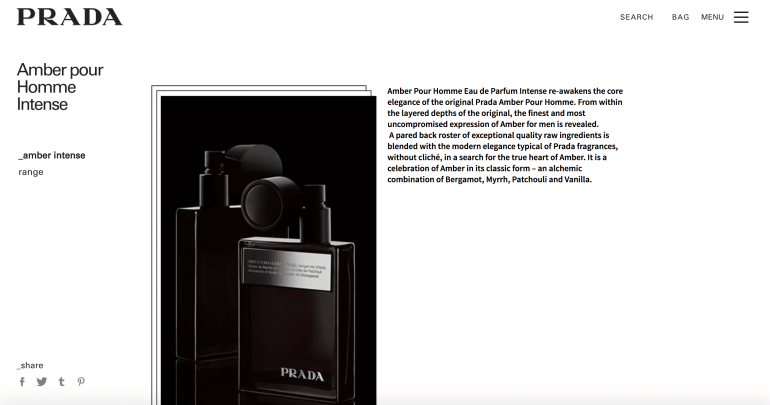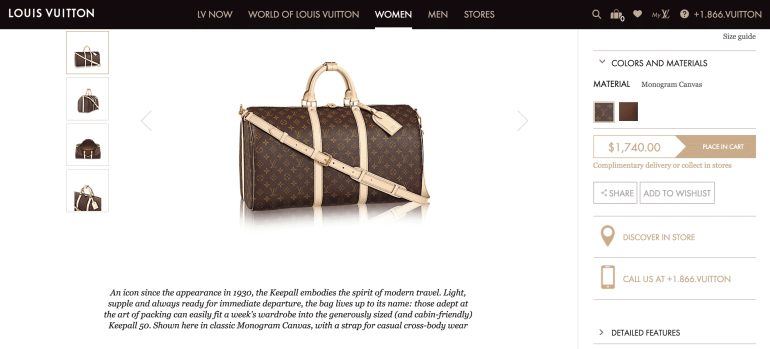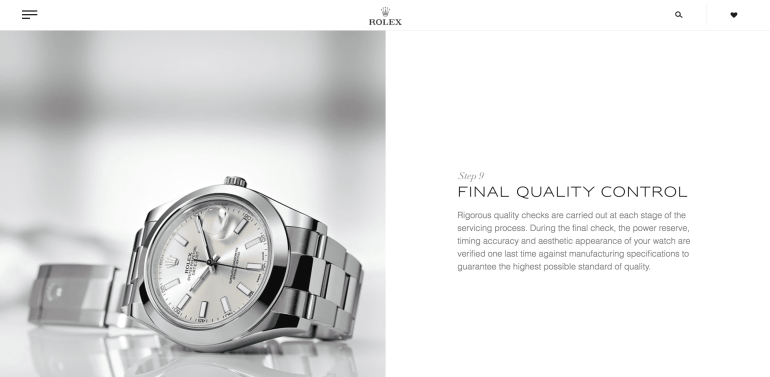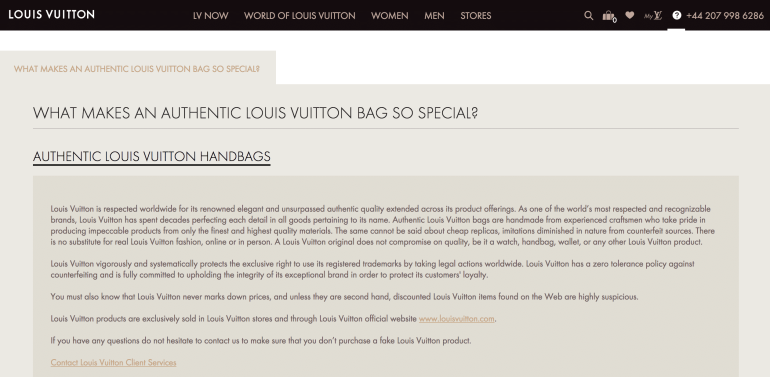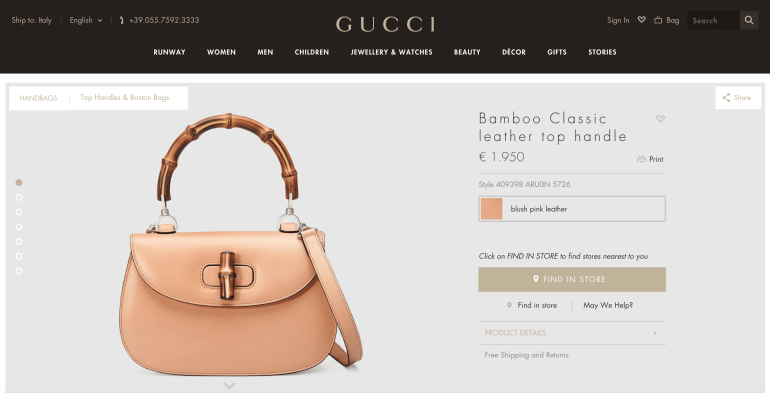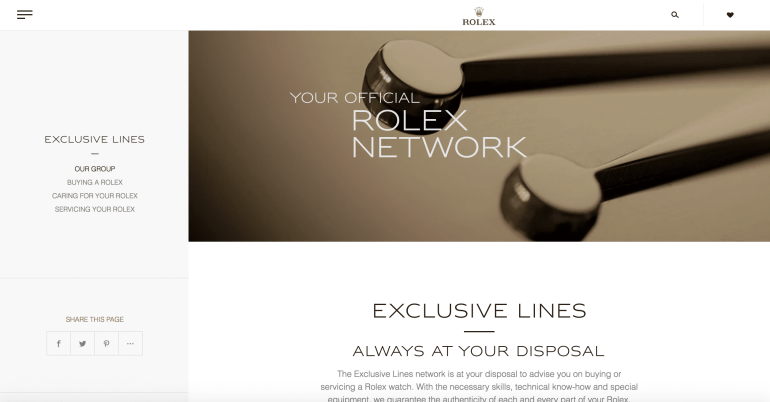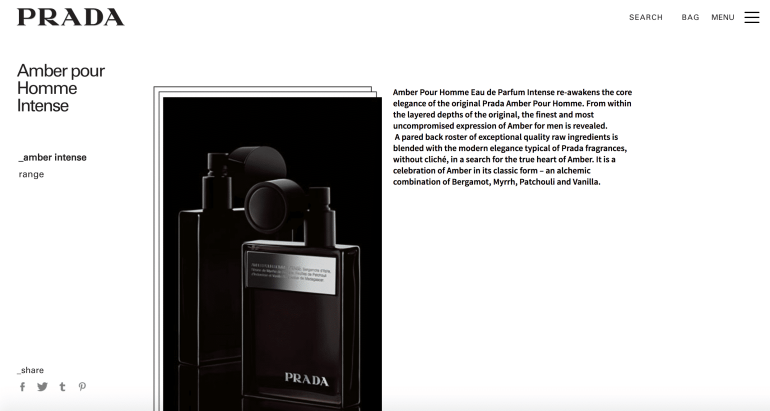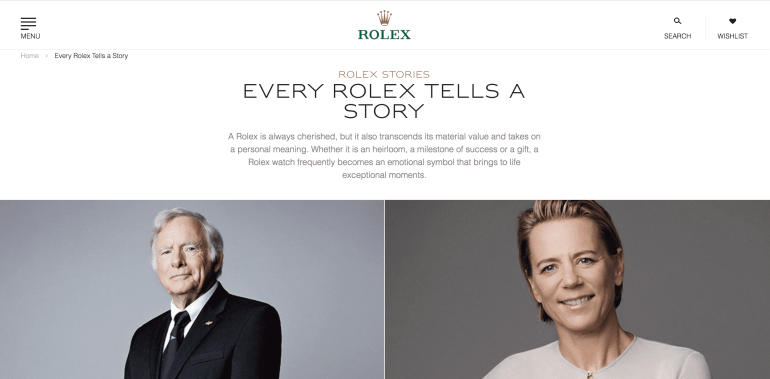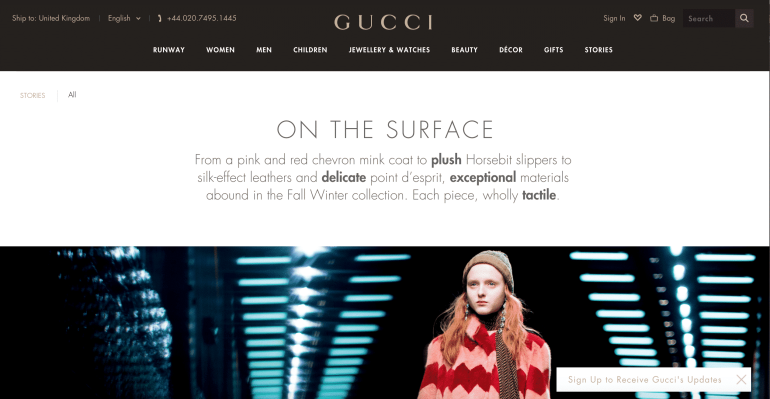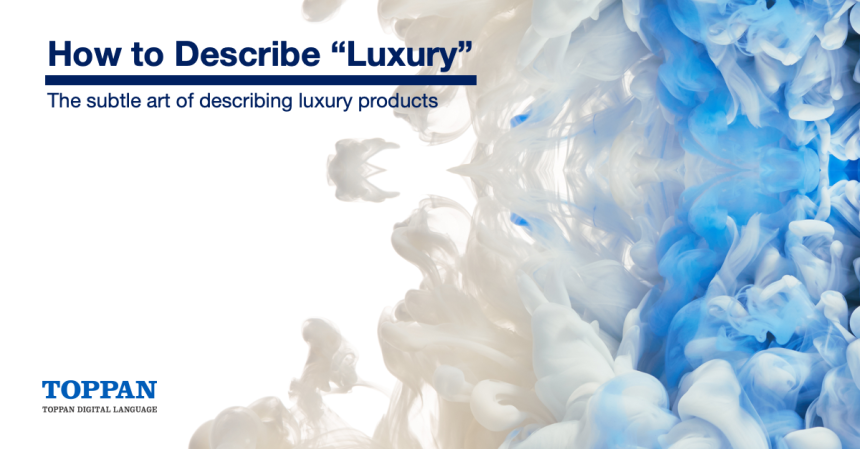
In summary: The subtle art of describing luxury products
- What we did – We looked at the top 10 luxury retail brands to understand how they described their products
- How we did it – The methodology was simple; we analyzed the words on each brand’s website. Then, we identified the top adjectives used by all the brands to describe the products
- Brands we analyzed – we selected the top 10 most valuable luxury brands worldwide (including Gucci, Chanel, and Burberry) according to Statista
As the concept of luxury has become widespread and more businesses seek to describe themselves as luxury brands – defining it has gotten harder. The term “luxury” can be associated with almost everything from fashion, jewelry, cosmetics, cars, travel, restaurants, and art to toilet paper.
Copywriting for luxury brands is a huge challenge not least because the concept of luxury is ambiguous. Luxury is also a relative concept. Quilted toilet tissue might not seem particularly extravagant in the developed world but it is indeed a luxury in countries where most people lack access to basic sanitation.
Luxury has become more than just an assurance of quality or something that is an indulgence rather than a necessity – it is about selling the dream and everything that goes with it, creating an emotional response and fostering brand loyalty.
Luxury brands are adept at utilizing non-verbal cues to portray the glitz and glamour associated with their products by communicating through imagery and subtle social signaling, rather than rational argument and rhetoric. But when it comes to describing products online, one has to rely heavily on words, and crafting these messages to appeal to customers takes skill and ingenuity.
How do luxury brands describe themselves?
There is no one definition of luxury but most luxury brands have their own idea of what it means to them and their customers. Coco Chanel famously stated that “some people think luxury is the opposite of poverty. It is not. It is the opposite of vulgarity.” Hermès defines luxury as “that which can be repaired” and Karl Lagerfeld describes luxury as “the ease of a t-shirt in a very expensive dress”.
READ MORE: How Consumer’s Understanding of Luxury Retail is Changing
Whatever you think luxury is, it’s no secret that the appropriate use of language is critical to brand positioning. But what are the most common words or phrases used by luxury brands to persuade and convert customers online?
To answer this question, we decided to conduct a study to examine how luxury brands describe their offering on their websites. For this study, we selected the top 10 most valuable luxury brands worldwide in 2017 according to Statista.
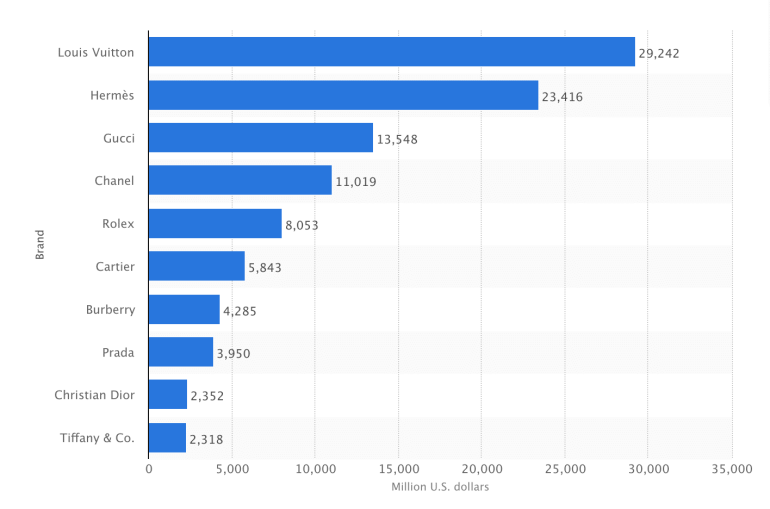
We examined the content on over 20,000 web pages for the top 10 luxury brands, analyzing over 17 million words to determine the most common adjectives and abstract nouns used by luxury brands to describe themselves and their products, and here’s what we found.
10. Unique
As one of the quintessential, incomparable adjectives, “Unique” is the 10th most popular word used by the luxury brands we studied.
Dior describes some of its clothing as having “uniqueness” and even has the word “unique” as part of the name of its line of watches.

Tiffany & Co describe its legacy as “unique and unexpected”.
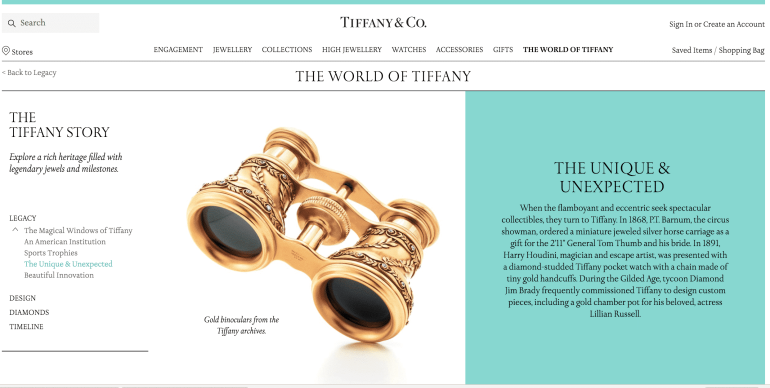
The Rolex Milgauss is particularly unique with its “unique aesthetics” and the Pearlmaster is characterized by “uniquely rich dials”.

While Burberry’s collection of personalised fragrances is described as “unique to the wearer” who is “unique and individual”.
9. Tailored
Synonymous with formalwear and craftsmanship, “tailored” is the ninth most popular phrase used by the top 10 luxury brands.
Gucci has a range of suits and trousers that are “tailored”.

Prada uses the phrase “tailor-made” to market its Made to Measure service.

Louis Vuitton has created its own “Tailoring” category.

And Dior’s jeans are “tailored” with a regular fit.
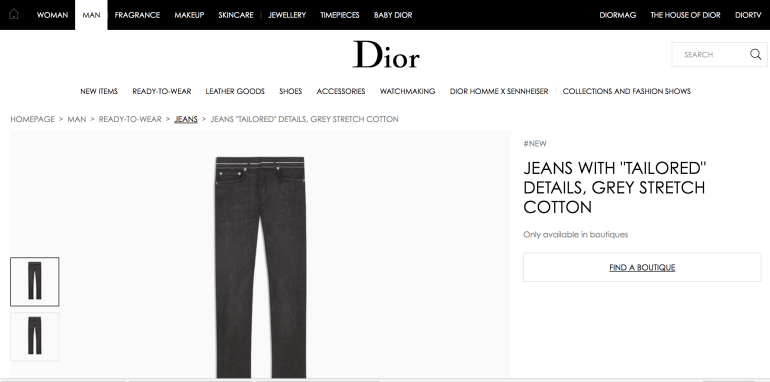
8. Elegant
Luxury brands commonly describe their products as being elegant or having elegance. While “elegance” may seem like a word typically used to describe products marketed to women, as the eighth most popular phrase used by the luxury brands we examined, it’s less feminine than you might think.
Multiple lines of Cartier watches have been described as “elegant jewelry watches” or have “elegant sword-shaped hands”.

Rolex describes its Lady-DateJust as having “graceful elegance”.

Prada’s Amber pour Homme Intense has “elegance” at its core.
7. Modern
The phrase “modern” is commonly used in the traditional way to describe a type of style that’s perpetually familiar to consumers. As the seventh most popular phrase used by the top 10 luxury brands, it’s frequently used in a variety of ways.
Louis Vuitton’s Keepall travel bag “embodies the spirit of modern travel”.
Cartier describes itself as “a pioneer in modern watchmaking”.
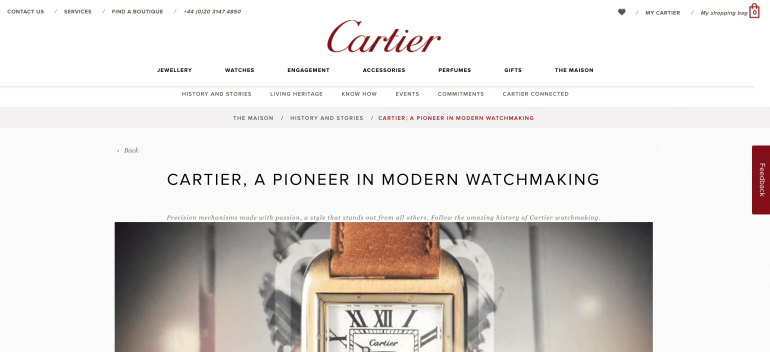
Burberry has created an entire category featuring brooches and fine tailoring called “Modern Heirlooms”.
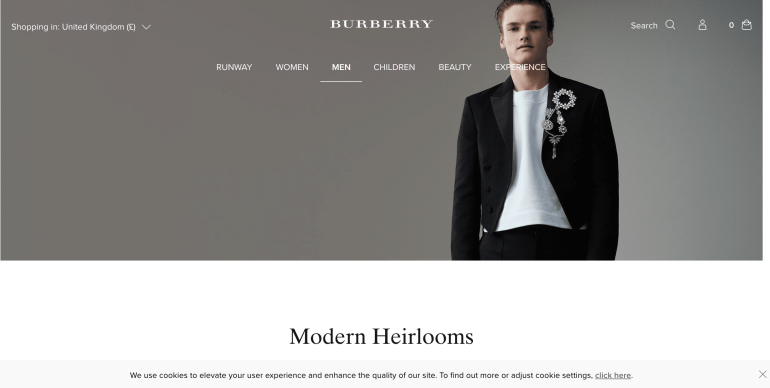
The Oyster Perpetual watch by Rolex is coined as “The modern archetype of the classic watch”.
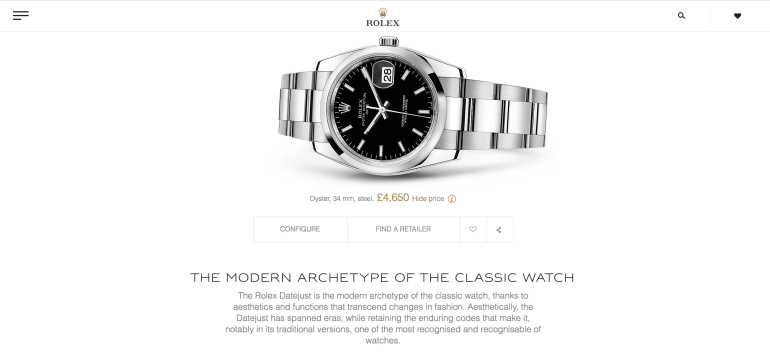
Curiously, Prada uses the phrase “modern restyling” to describe a traditional brogue shoe with unconventional features.
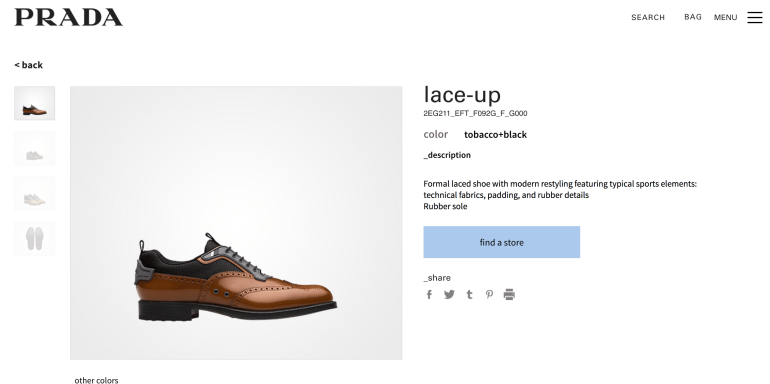
6. Quality
Luxury goods can command high prices because they are manufactured with better materials and superior craftsmanship. So it’s no surprise that the term “quality” is used extensively by luxury brands to describe their offering.
Rolex ensures “fine quality control” and tests all of its products to “guarantee the level of quality and reliability”.
Cartier’s women’s sunglasses are described as having a combination of “innovation and unique quality”.
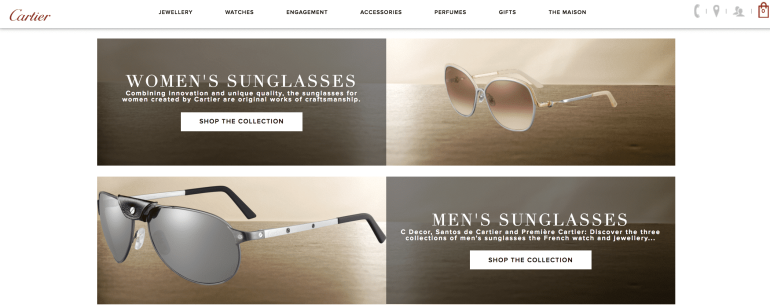
Louis Vuitton prides itself on “not compromising on quality” and using “the finest and highest quality materials”.
And Dior’s scarves and gloves are made using ”high-quality fabrics” and “high-quality leather”.
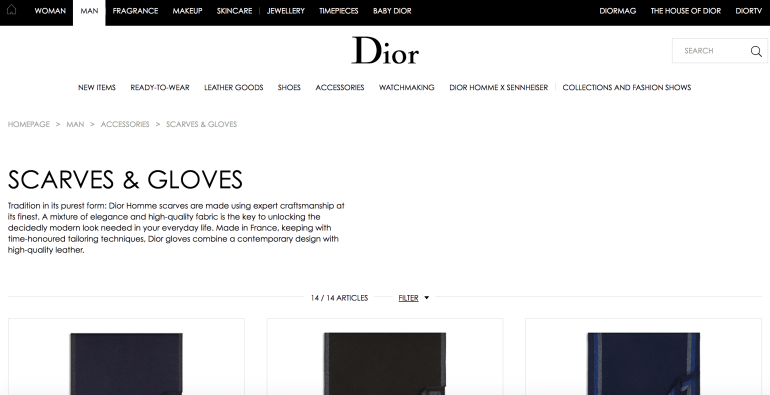
5. Classic
The term “classic” is typically synonymous with a traditional or formal look. Despite this, it was still the fifth most popular term used by the top luxury brands to describe their products.
Hermès has a single “classic” t-shirt available in 20 colors.
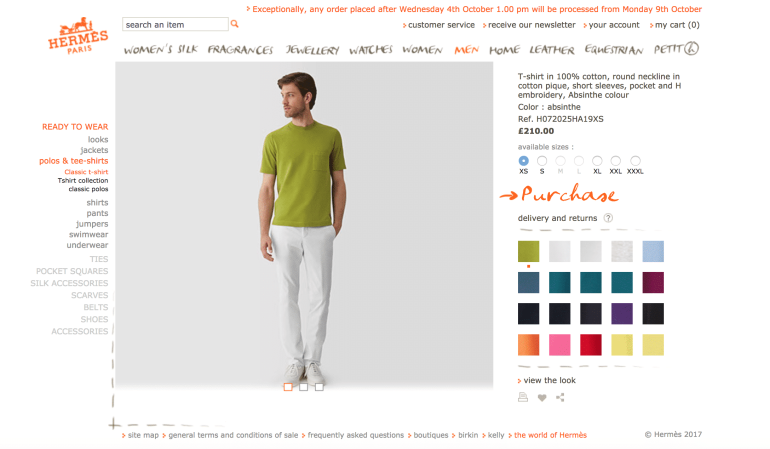
Similarly, Burberry has a “Classic Cashmere Scarf”.

And Gucci features a “classic” leather top-handle bag.
While Tiffany & Co has created an entire collection called “Tiffany Classic”.
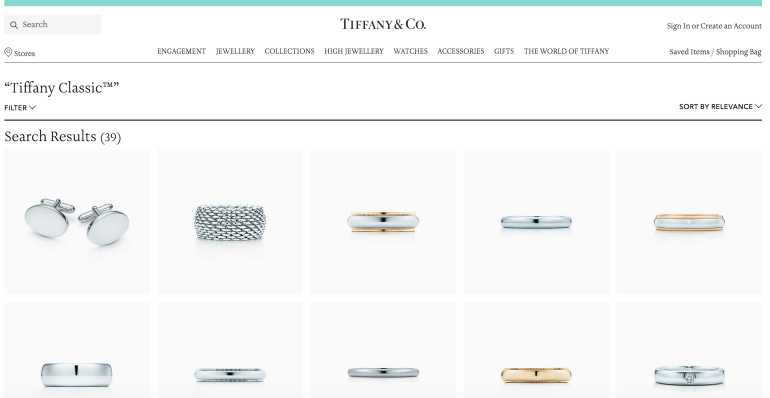
4. Precious
The word “precious” is typically associated with jewelry and gemstones and there are plenty of examples of this. Rolex, Cartier, and Tiffany all take great pride in using “precious stones”, “precious metals” and other precious objects. But luxury clothing and accessory brands also use the phrase extensively.
Hermès describes its perfumes as “more than precious”.
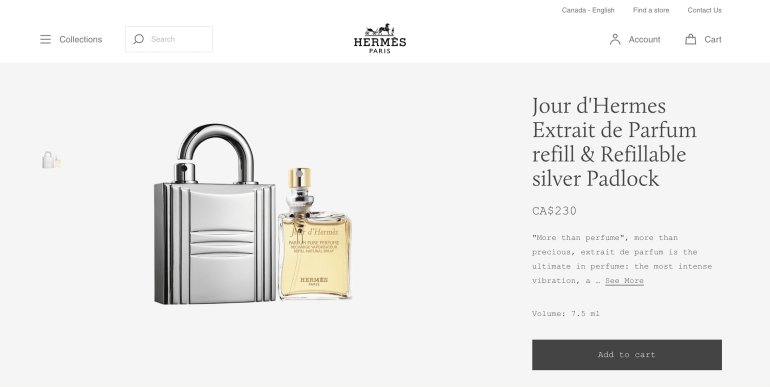
Crocodile skin is the main feature in Gucci’s “Men’s Precious Skins” category.
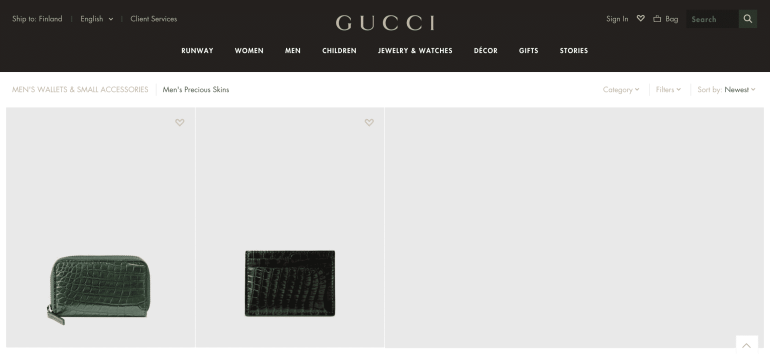
And Burberry’s women’s accessories category also features “ponchos in precious plastic”.
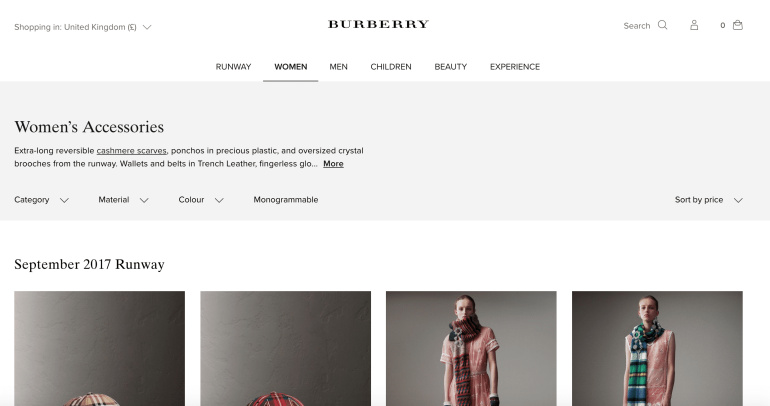
3. Exclusive
As the third most widely used phrase we identified – “exclusive” is most commonly used to incentivize users to sign up for a newsletter (e.g. “Receive all exclusive Dior updates”.) or to describe items only available in their eCommerce store as “online exclusives”.
Both Gucci and Burberry, for example, have products on their website that are ‘’online exclusives’’ to increase online sales.
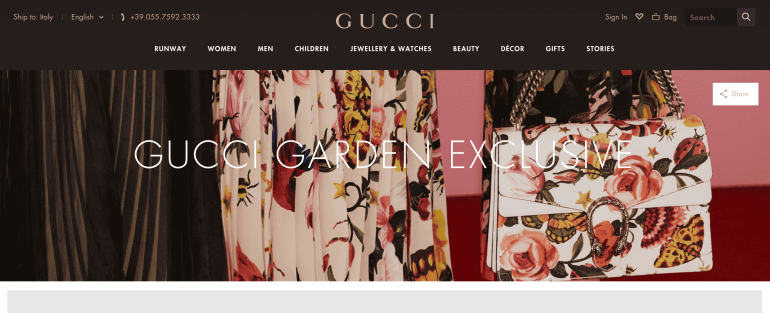
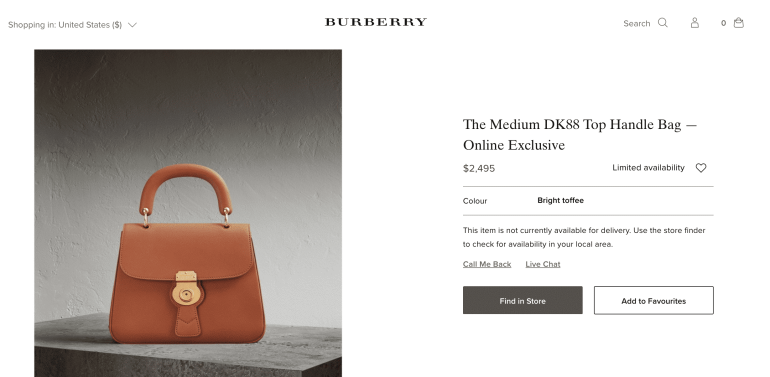
The term is also widely used elsewhere. Rolex has an “Exclusive Lines Network” to advise its customers on all technical aspects of its products to ensure Rolex customers make the right choice about their purchase – a sensible tactic when you consider the purchase of a single item could cost over £10,000.
Both Prada and Tiffany & Co have designed an eyewear range made with “exclusive” features.
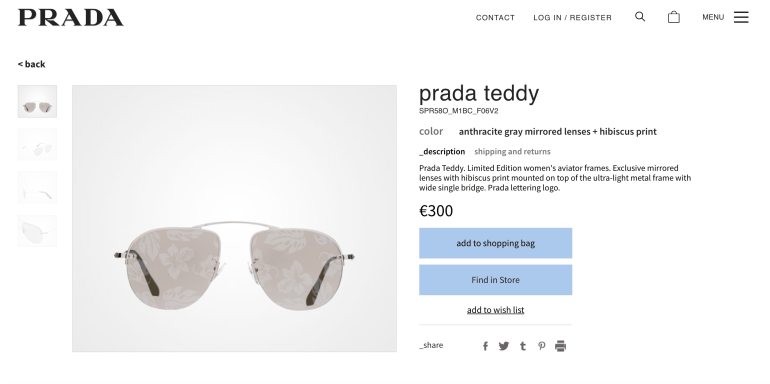
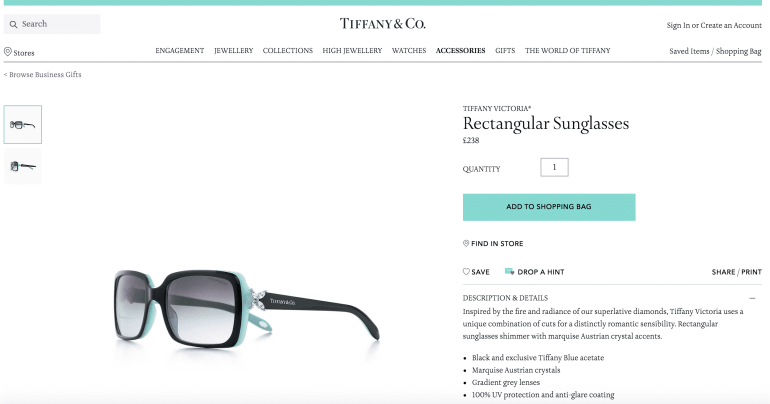
Louis Vuitton even has smartwatches that allow users to “access exclusive content” from the fashion brand.
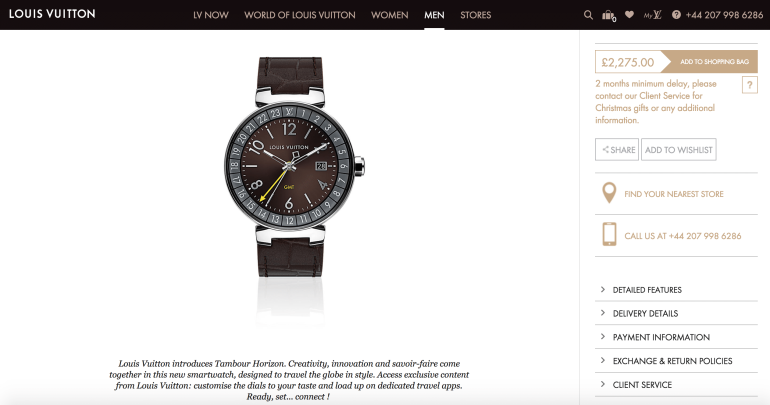
2. Signature
The term “signature” is widely used in the fashion press in relation to items that brands are renowned for. For instance, Burberry is best known for the tartan pattern and tan trench coats that represent the brand’s luxurious feel while Louis Vuitton’s signature product is the famous bag with interlocking L and V and floral patterns.
What’s interesting is that brands themselves often describe their products and features with the term “signature”, making it the second most popular phrase used.
For instance, Dior has grouped a selection of its products to create a ‘’Signature’’ collection of fine jewelry that denotes the overall aesthetic of the French fashion brand.
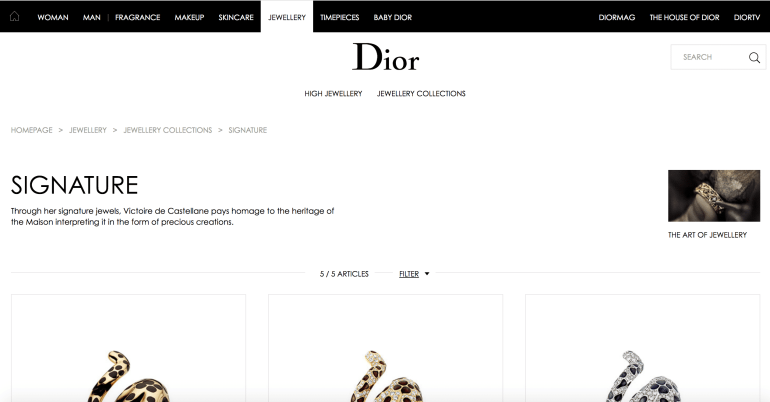
Similarly, Gucci has created a category to market its selection of ‘’signature’’ bags and purses.
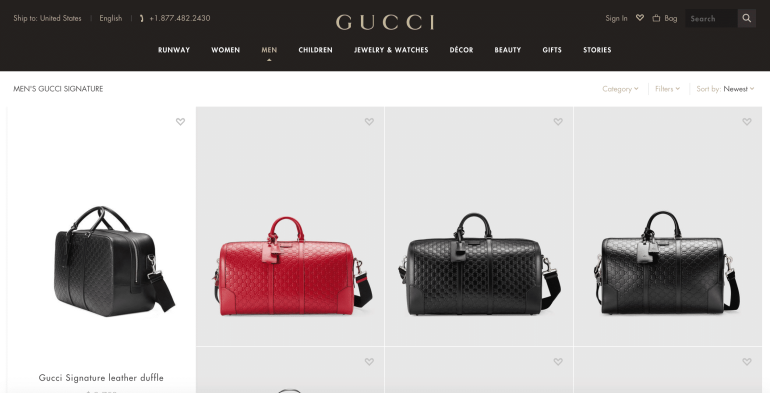
Burberry has created a category called ‘’signature bags” from oversized totes to splash-proof backpacks. One of the bags is even named after the fabric used in its trench coats – described as the “signature honey-colored gabardine”.

Rolex often describes features in their line of watches as “A true Rolex signature”.
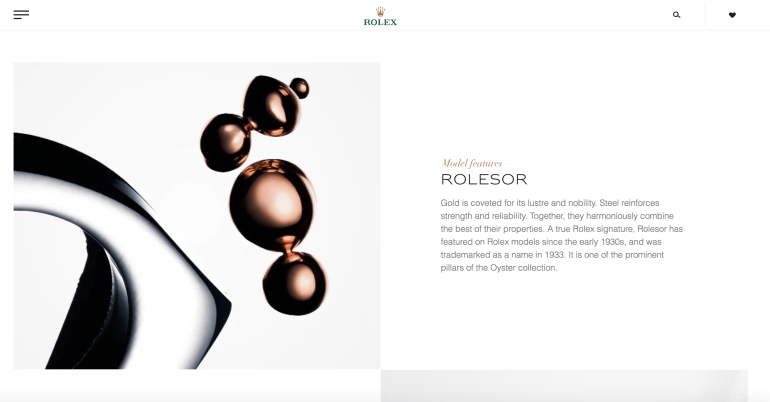
Tiffany & Co has also created a collection of pearl-based fine jewelry called “Tiffany Signature”.
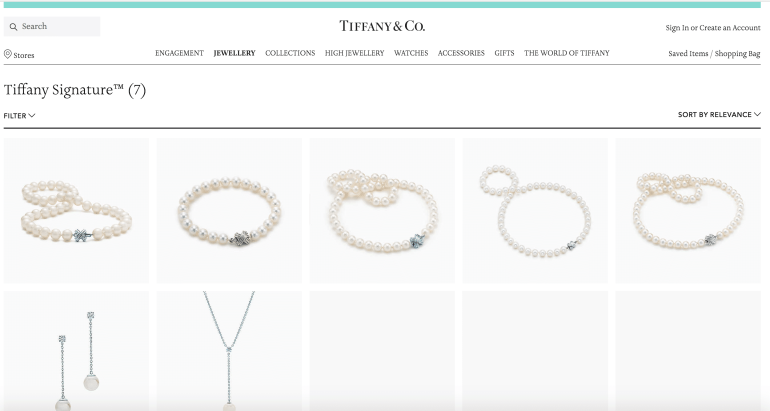
While Cartier describes the “double C” Cartier stamp on its jewelry as an actual signature of the brand created by Louis Cartier himself.
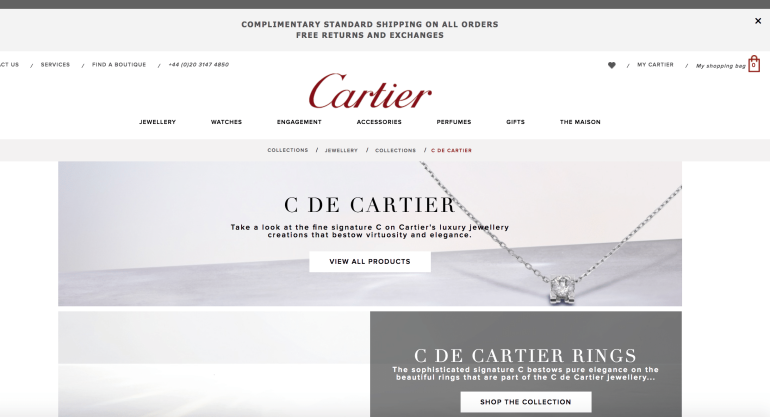
1. Exceptional
“Exceptional” was the top phrase used by all the luxury brands we studied.
Dior’s watches are “exceptional”.
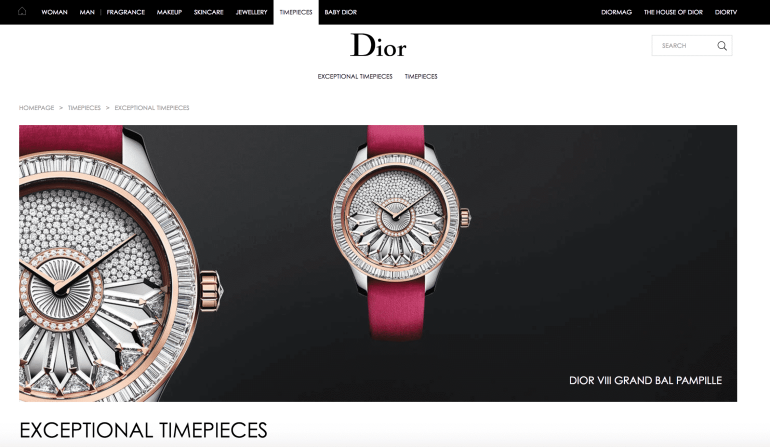
And so are their perfumes.
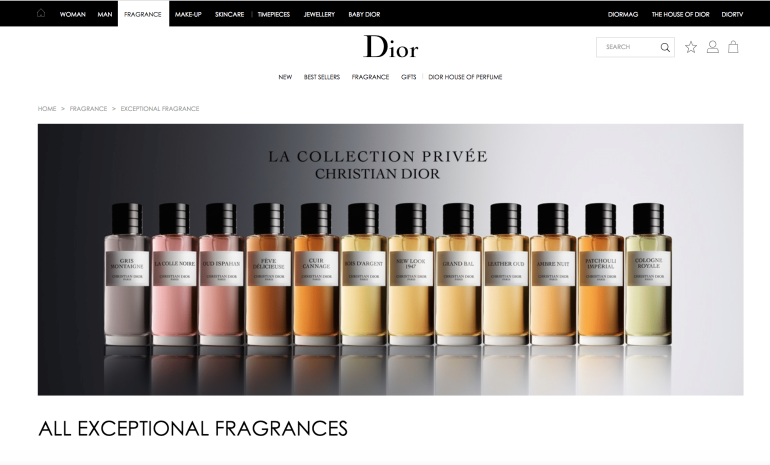
Similarly, Prada’s fragrances include raw ingredients of “exceptional quality”.
Burberry has “exceptional” colors in its eyeliner range.

Rolex focuses more on allowing its customers – who are described as “exceptional men and women” – to experience “exceptional moments”.
Gucci uses “exceptional materials” combined with “exceptional workmanship” to create products that allow its customers to display “exceptional refinement”.
Cartier features “exceptional” jewelry, clocks, pens, and gifts – all of “exceptional” quality with “exceptional” finishes.
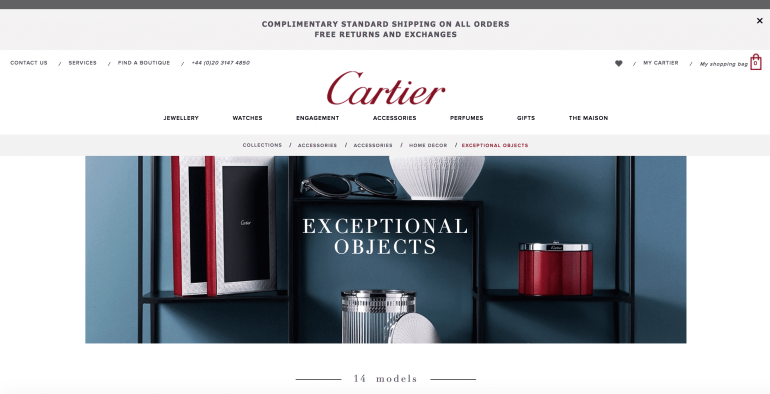
While these brands often use similar language to describe themselves and their products, they all have distinct brand personalities. A brand’s personality is formally defined as “a set of human characteristics associated with the name of a product, service or company” or simply put – adjectives used to describe a brand.
So, the use of language and tone of voice are both hugely influential in determining how a brand is perceived by customers. For luxury brands, symbolism is equally important and the brands that successfully combine the use of symbolism and language to convey the human personality traits of their target audience, manifested by quality, craftsmanship, heritage, rarity, aesthetics, and exclusivity are the ones most likely to succeed.

